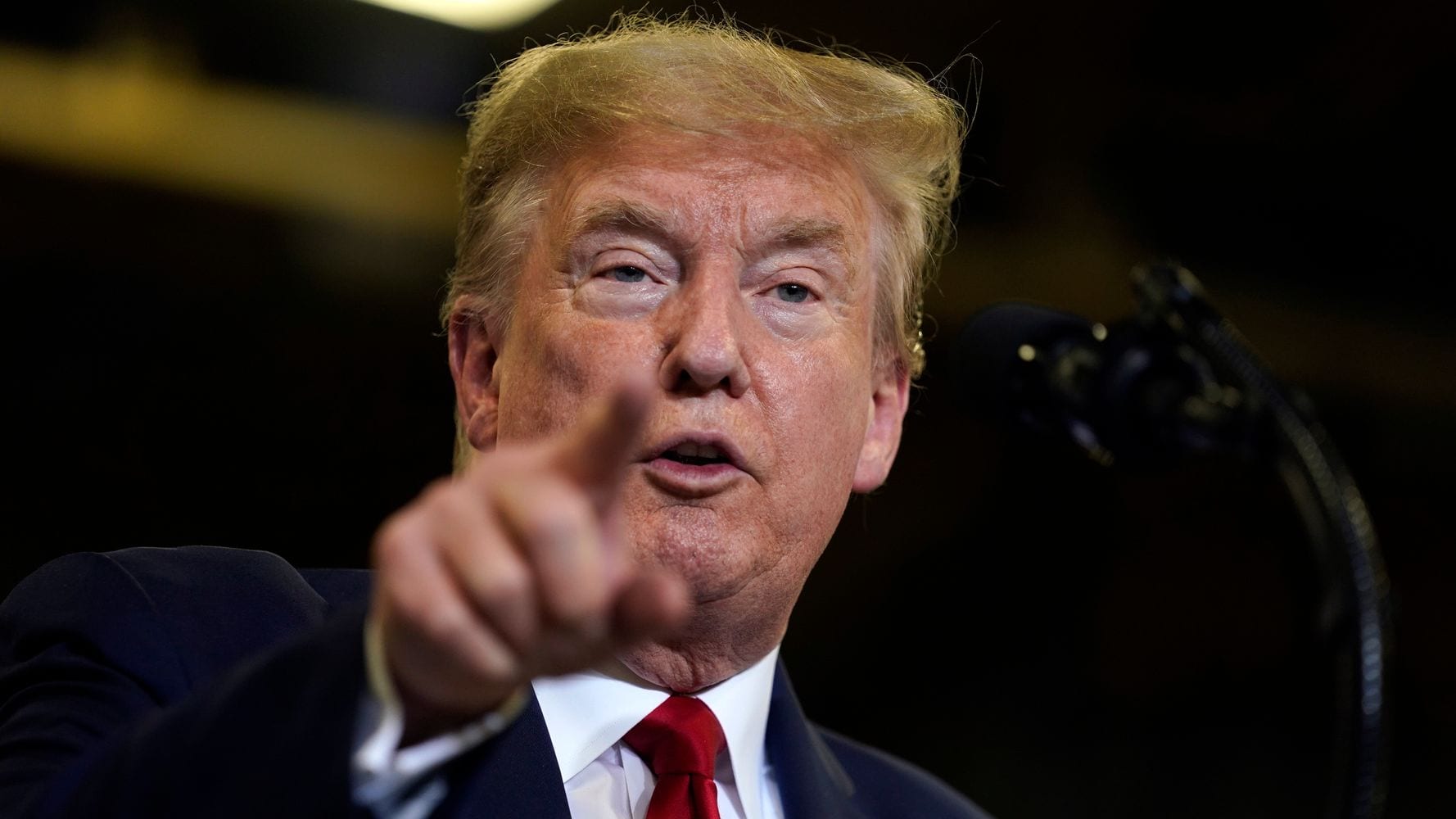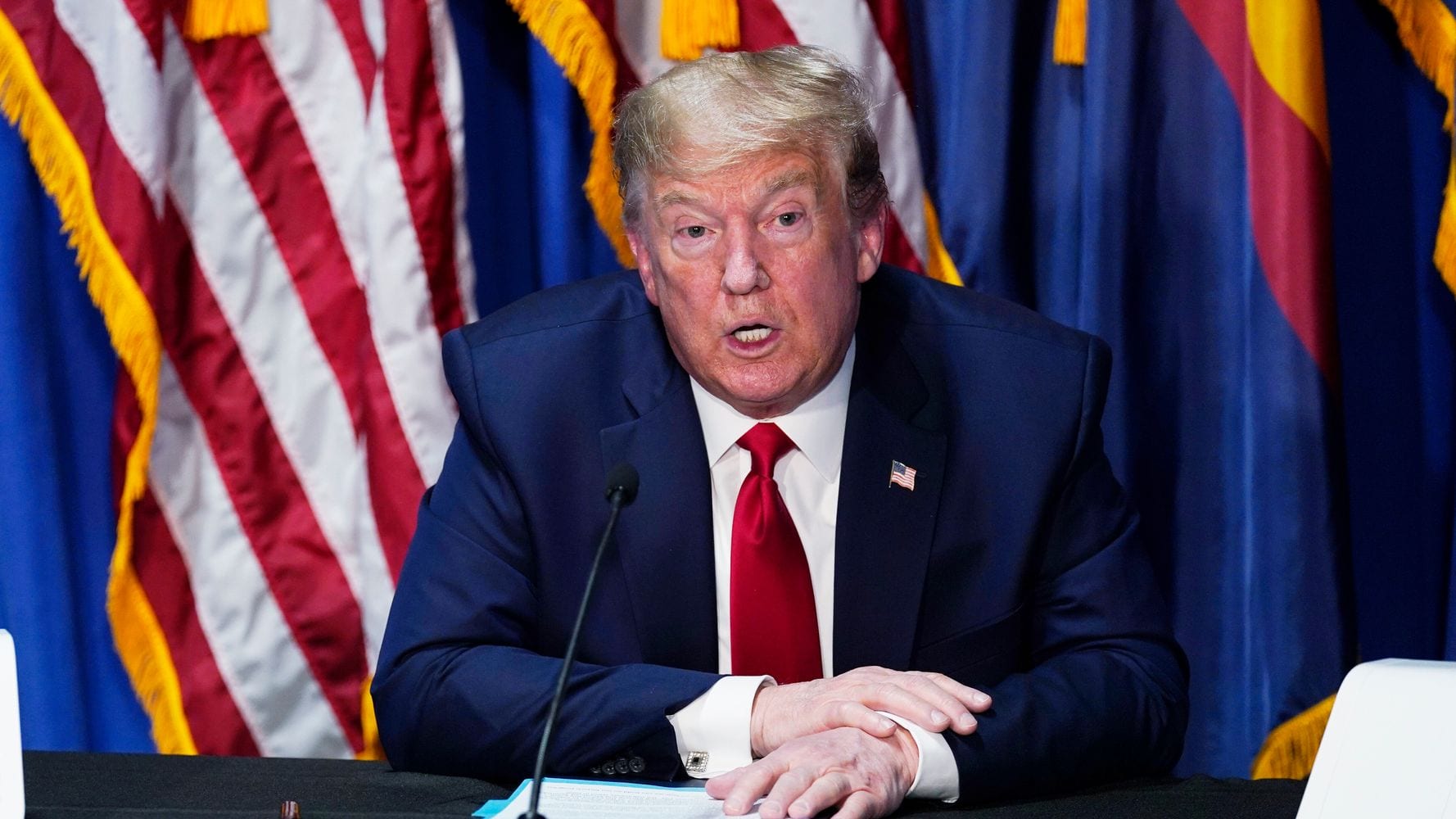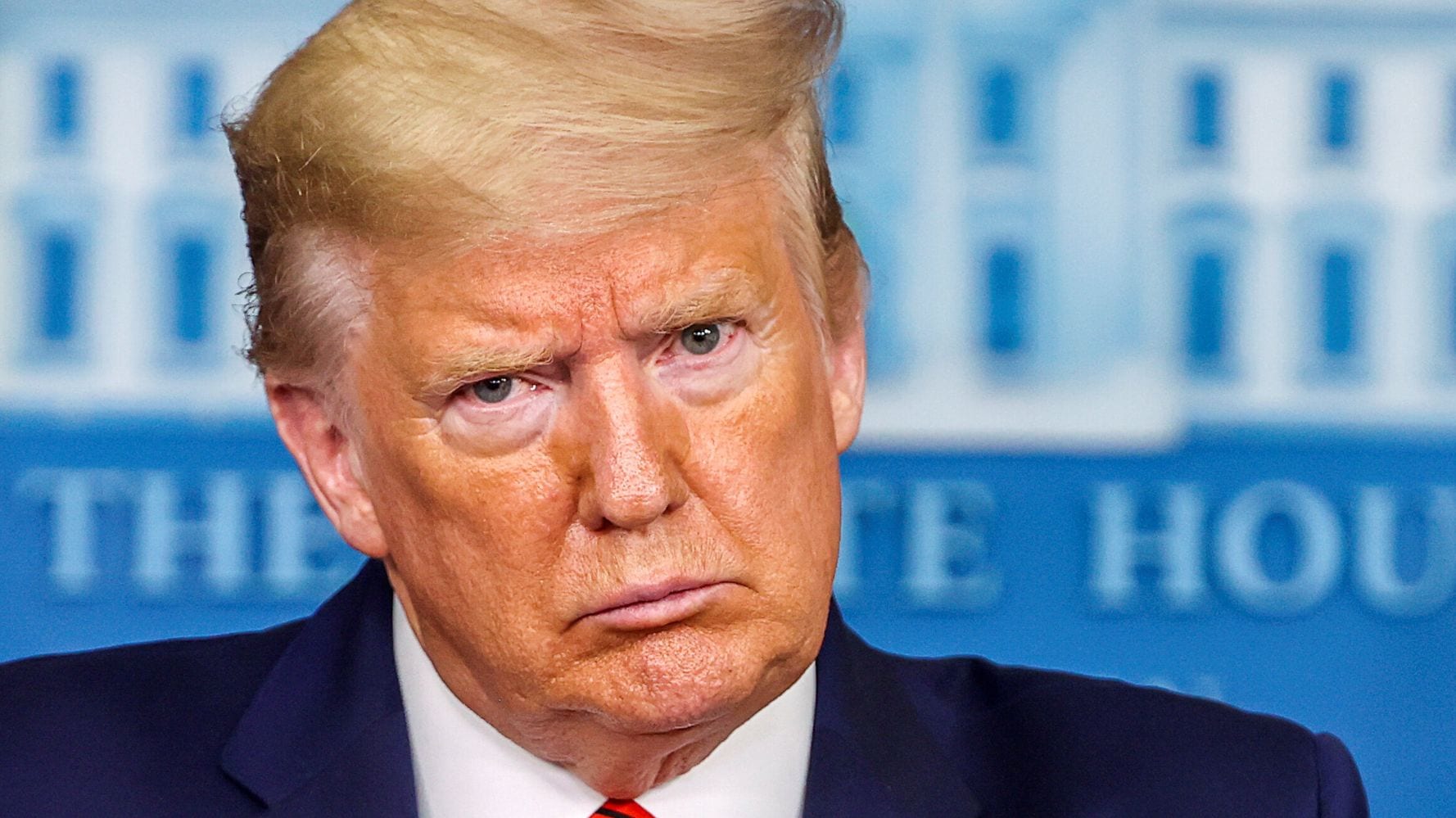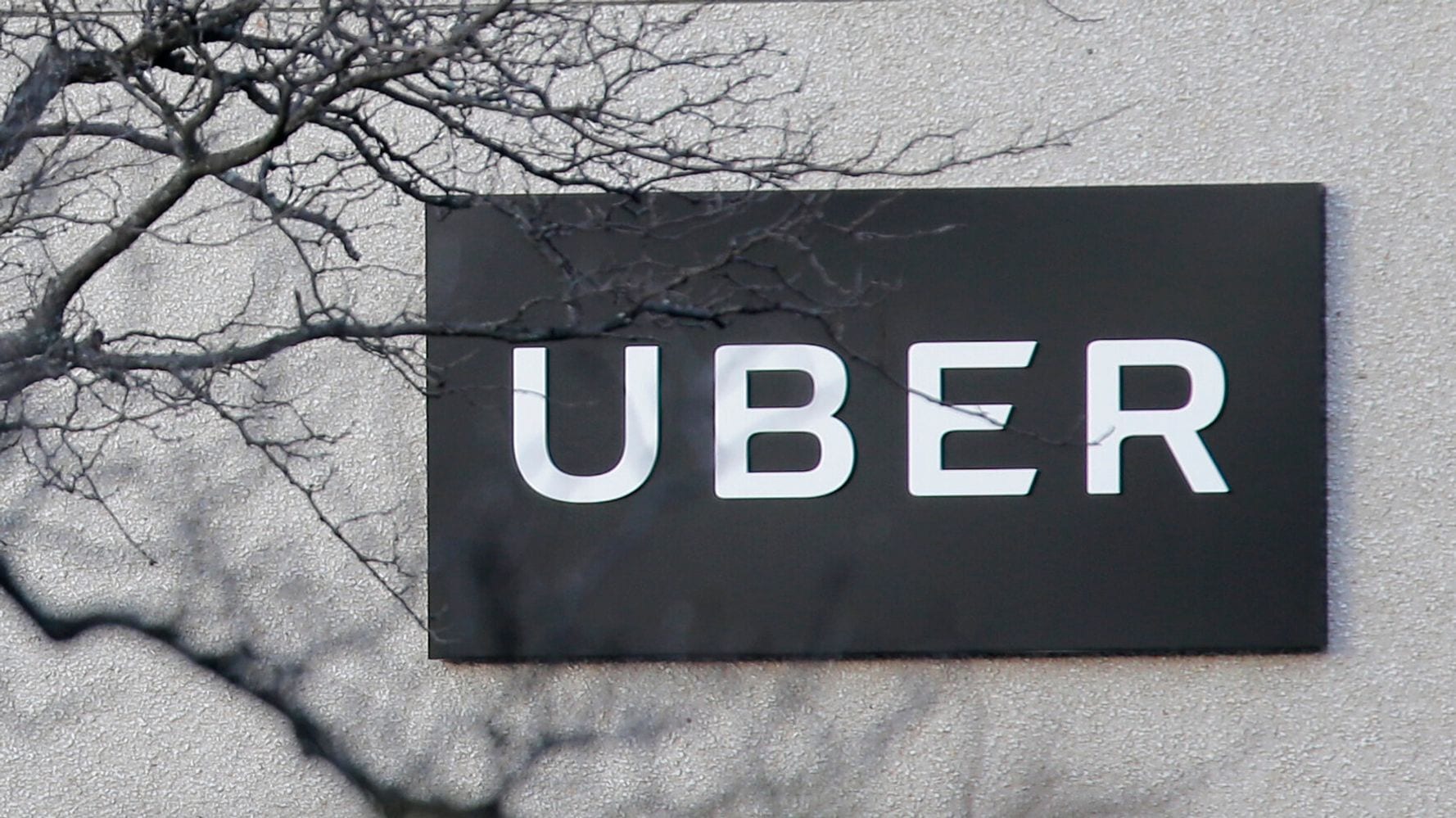[ad_1]
President Donald Trump wants Republicans to “fight very hard” against “horrible,” “corrupt” proposals allowing voters to cast their ballots by mail during the coronavirus pandemic. But the states that matter most for Trump’s reelection campaign already allow voters to do just that.
Arizona, Florida, Michigan, North Carolina, Pennsylvania and Wisconsin, the six states most likely to decide the Electoral College winner, all allow voters to obtain and cast ballots through the mail without an excuse. Even if the current wave of COVID-19 infections abates due to stay-at-home efforts, a second wave could hit the U.S. in the fall, the Centers for Disease Control and Prevention warns.
In each state, however, there are new battles over access to mail-in ballots and how they will be counted in November. And Trump’s evidence-free claims that mail-in voting has “[t]remendous potential for voter fraud” might yet warp those debates and make it harder for people to vote in November.
Trump’s false assertions aim to block political consensus on how to conduct a safe presidential election in which everyone is able to vote. The stakes couldn’t be more clear, even when the policies under consideration sound like minor technical adjustments like sending every voter a mail-in ballot application, or minor budget questions like providing enough funding to count votes on election night.
Some state-level Republicans, even in places where voters have used mail-in ballots for years, are beginning to echo Trump’s rhetoric while opposing the expansion of voting by mail in these states.
If they succeed in blocking reform, the 2020 presidential election may not be free, fair nor safe.

Arizona
Of the six most important swing states, Arizona has adopted voting by mail most widely, with nearly 80% of votes cast through the mail in the 2018 election. Voters can opt to receive a mailed ballot for every election by signing up for the state’s permanent absentee ballot list.
The option has long been popular with key Republican Party constituencies in the state like the elderly. Republicans control most levers of power in the state, including the governor’s office and the state legislature.
Still, Republicans do not want to expand Arizona’s vote-by-mail program, as Secretary of State Katie Hobbs, a Democrat, and officials in multiple counties have requested. Republicans ignored a proposal from the Arizona Association of Counties to allow counties to order all-mail elections and send every voter an absentee ballot during the latest legislative budget session. Gov. Doug Ducey (R) remains opposed.
All-mail elections would “only compromise the integrity of elections,” state Rep. Shawnna Bolick (R) wrote in an op-ed for the Arizona Republic on April 2.
Representatives for Arizona’s county recorders responded to Bolick with their own op-ed noting that mail-in ballots present a minimal threat of fraud (Arizona has prosecuted 22 cases of absentee voter fraud since 2010) and that in-person elections are far more complicated and expensive to plan and staff, particularly when the sites need to be constantly sanitized due to a viral pandemic.
Another lingering issue in Arizona is the deadline for when absentee ballots can be returned and counted. Arizona currently requires voters to return absentee ballots by close of business on Election Day. Voto Latino Foundation, a progressive group, and Priorities USA, an arm of the Democratic Party super PAC Priorities USA Action, are suing the state to force it to count ballots that are postmarked by Election Day but that arrive later.
In a memo to the court filed on April 15, the groups cited a recent Supreme Court decision regarding Wisconsin’s April 7 election, which was held amid the coronavirus pandemic. The court’s decision overruled an extension of absentee balloting in the state while upholding the extended deadline for absentee ballots postmarked on Election Day and received up to one week later.
It is this latter portion of the court’s controversial decision that progressive groups are citing to extend the deadline for absentee ballots to be counted in Arizona.
Florida
“Florida is not in a position, at this time, to conduct an all-mail ballot election this year,” the state’s election supervisors warned in a letter to Gov. Ron DeSantis (R) on April 7.
The letter called on the governor to give election officials the authority to consolidate in-person polling places, extend early voting and provide funding to accommodate an increase in absentee ballots. DeSantis has not responded yet.
Florida Democrats, meanwhile, are urging the state to move to a nearly total vote-by-mail election for 2020, or at the very least, expand absentee voting as it currently exists.
Florida already has a fairly easy-to-access vote-by-mail system. Created in 2002 following the 2000 election debacle, voting by mail has become popular among Republican constituencies. Around 30% of Florida voters cast mail-in ballots in the 2016 and 2018 elections. Trump voted by mail in the state’s March 17 primaries from his residence at Mar-a-Lago in Palm Beach County.
County officials aren’t waiting on the governor’s decision to take action. The Broward County Supervisor of Elections Office plans to mail every registered voter a form they can return to request an absentee ballot. Miami-Dade County and Palm Beach County are also looking to either mail request forms to voters or otherwise increase voter education on the subject.
Volusia County held an all-mail election for a sales tax increase in 2019. “For our county, it is doable,” Volusia supervisor Lisa Lewis told the Orlando Sentinel about holding an all-mail election. “We did it.”
Michigan
Michigan is the state to most recently allow no-excuse absentee voting by mail of the six swing states. It did so after adopting a ballot initiative in the 2018 elections and saw a surge in absentee ballots mailed in for its March 10 presidential preference primary election. That was the same day the governor declared a state of emergency due to the pandemic.
Secretary of State Jocelyn Benson (D) announced a plan to send every registered voter an absentee ballot request form on March 23 for the upcoming May 5 local elections. Gov. Gretchen Whitmer (D) backed Benson’s announcement with an executive order on March 27 that empowered the secretary of state to send absentee ballot applications to voters and to automatically count any new voter registration as an application for an absentee ballot, among other things.
The governor may extend the executive order to cover the state’s August primary elections and November general election, depending on the danger the pandemic presents at that time.

Prior to the March presidential primary elections, county election officials in Michigan had requested increased funds from the state legislature to properly handle the surge in absentee ballots. The Republicans who control the legislature refused to approve the funds, instead taking a wait-and-see approach to determine if they would be necessary. This delayed the vote count for the March 10 primary, with results not posted until the afternoon of March 11. The issue will likely resurface as the state increasingly encourages absentee voting.
North Carolina
Voters in North Carolina have the option to vote by mail with an absentee ballot for any reason, but few have chosen to do so in the past. That is expected to change with the coronavirus pandemic. The state’s board of elections put forward a list of 15 recommendations to Gov. Roy Cooper (D) and the Republican-controlled state legislature on March 26.
Elections board executive director Karen Brinson Bell’s recommendations included allowing voters to submit an absentee ballot by fax or email, waiving or reducing the state’s stringent witness requirement, allowing anyone to collect and return absentee ballots, providing prepaid return envelopes, making it easier to request an absentee ballot and register to vote online, and making Election Day a holiday, among other things.
Republicans in the state legislature appear uninterested in many of these changes. But there may be support for providing prepaid postage on envelopes to voters who request an absentee ballot.
The proposal to allow anyone to collect and return absentee ballots is the item receiving the most attention among Bell’s proposals.
In 2019, the legislature passed a bipartisan bill banning the collection of absentee ballots and requests for absentee ballots after the election of Republican congressman Mark Harris was overturned due to his campaign’s absentee ballot corruption. Harris’ political consultants were convicted of absentee ballot fraud to help him win the 2018 election. His election was decertified and a new election was called.
Democrats filed a lawsuit against the 2019 law, alleging that it infringes on the political association rights of groups promoting voter turnout, particularly among Black voters. The Democratic Party’s top elections lawyer, Marc Elias, is leading the lawsuit.
Pennsylvania
It is now easy for Pennsylvania voters to register for the state’s permanent vote-by-mail list, thanks to legislation passed by the Republican-controlled legislature and signed by Democratic Gov. Tom Wolf in 2019. Both the Republican and Democratic parties have been sending mail to their voters to get them to sign up for the vote-by-mail list since the bill’s passage.
A bipartisan collection of county officials in three suburban Philadelphia counties is urging Wolf to institute an all-mail election for the state’s June 2 primary, which was originally scheduled for April 28. Wolf is looking into options to encourage voting by mail.
When the legislature voted to move the state’s primary date, Republicans blocked an effort by state Rep. Kevin Boyle, a Democrat from Philadelphia, to require the state to mail every registered voter an application for a mail ballot. They may revisit the issue later, depending on the status of the pandemic.
Wisconsin
Wisconsin’s April 7 election revealed many of the problems associated with holding elections during a pandemic. Election officials consolidated polling sites and were overwhelmed by absentee ballot requests. Confusion reigned amid legal challenges and last-minute efforts to postpone the election. While the state shattered records for absentee voting, some voters risked their health to vote after their mail-in ballots never arrived. Others who never received their requested ballots simply didn’t vote.
The state now has a long time to prepare for its coming special and primary elections before November’s general election. A special election to fill a vacant congressional seat is set for May 12. The chairs of both the Democratic and Republican parties are looking to Gov. Tony Evers (D) to announce plans for that election far earlier than he did for the April 7 election.
Counties may expand vote-by-mail options as well. Ald.-elect Marina Dimitrijevic, a Democrat just elected to the Milwaukee Common Council, has proposed legislation to send every Milwaukee resident an application for an absentee ballot, which Evers, Milwaukee Mayor Tom Barrett (D) and other council leaders support.
Calling all HuffPost superfans!
Sign up for membership to become a founding member and help shape HuffPost’s next chapter

















